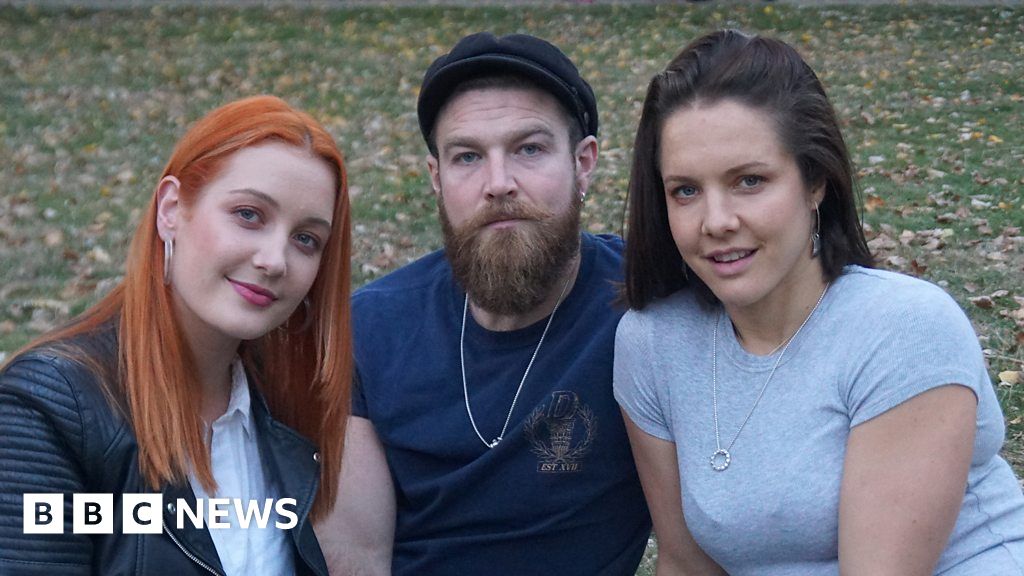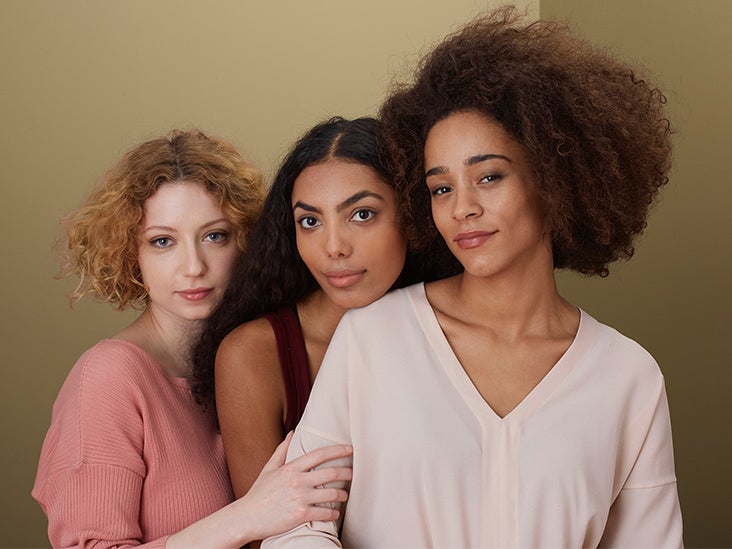Throuple Marriage Legal - Understanding Your Relationship Rights
Relationships, as we know, keep changing and growing, don't they? People are finding new ways to connect and build their lives together. For many, the idea of a romantic connection involving more than two individuals is something that feels quite natural, a way to express love and dedication in a broader sense. This evolving view of partnerships brings up a lot of questions about how our established systems, especially those around legal unions, keep pace with these personal choices.
One such partnership style that has gained more attention lately is what people call a "throuple." It's a relationship where three people are romantically linked, and each person shares an intimate bond with the other two. This kind of arrangement, you know, really challenges some of the long-held ideas about what a family or a committed partnership looks like in a legal sense.
As more people consider or live in these kinds of relationships, the topic of "throuple marriage legal" status becomes a really important discussion. It's about figuring out what protections exist, what challenges remain, and how the law might eventually recognize these heartfelt connections. We'll explore some of the current realities and what they might mean for people in these unique unions.
- 350 Legend Lever Action
- Jordan Chiles Mom Ethnicity
- Senior Swingers
- Mona Rhazi
- Kimmy Granger Ill Protect You
Table of Contents
- What is a Throuple Relationship?
- Are Throuple Marriages Legal in the United States?
- How Does Federal Law Affect Throuple Marriage Legal Status?
- What About Polygamy and Throuple Marriage Legal Standing?
- What Protections Exist for Throuple Marriage Legal Situations in Some States?
- How Do Commitment Ceremonies Relate to Throuple Marriage Legal Recognition?
- What are the Hurdles for Throuple Marriage Legal Acceptance?
- What is the Throuple Marriage Legal Situation in Other Countries?
What is a Throuple Relationship?
A "throuple," you see, is a rather interesting word, made by blending "couple" and "three." It points to a particular kind of romantic arrangement where three people are involved, and each person shares a close, loving connection with the other two. This means the affection and dedication flow among all three individuals, creating a unified romantic unit. It's a bit like a traditional couple, but with an added person, making the dynamic, in a way, a bit more expansive.
While some media portrayals might, for example, often show these relationships as being between two women who are bisexual and one man who is straight, the truth is that throuples can actually be made up of any mix of genders. There are no fixed rules about who can be in a throuple. It could be three men, three women, or any combination of people with different gender identities. The important thing is that the bond is genuinely shared among all three, with each person feeling a true connection to the others.
It's worth noting, too, that throuples can have just as much dedication and commitment among their members as traditional two-person couples. Just because a relationship has more than two people doesn't mean it is any less serious or long-lasting. These relationships, quite honestly, often involve deep emotional bonds and a strong desire for a shared future, even if they sometimes lack the same kind of official recognition that two-person marriages typically receive. The emotional investment, you know, can be really profound.
Are Throuple Marriages Legal in the United States?
When we talk about the legal standing of a throuple marriage, the simple answer for the United States is that, as of now, these kinds of unions are not recognized anywhere across the nation. This means that if you are part of a throuple, especially in a place like New York state, it is really important for you and your partners to have a clear idea of what legal protections are, or are not, available to you. Without formal legal recognition, certain rights and safeguards that married couples often take for granted just aren't there for a throuple.
The issue of marriage is, in fact, something that involves both the federal government and individual states. This means that laws about who can marry whom are shaped by decisions made at both national and local levels. Historically, federal laws have played a big part in defining what marriage means for various benefits and privileges. For instance, before a law called DOMA was put into place, a government office identified over a thousand federal rules where benefits, rights, and special treatment were linked directly to whether someone was married.
An update to this information came out in 2004, covering the time after DOMA was signed into law. This shows just how many parts of our legal system, you know, really depend on a person's marital status. It influences everything from taxes to healthcare decisions. So, for a throuple, the absence of legal marriage status means a lot of these common protections and benefits are simply out of reach, making it, in some respects, a very different legal landscape for them.
How Does Federal Law Affect Throuple Marriage Legal Status?
Federal law plays a pretty big part in how marriage is viewed across the country. You see, the government has, for a long time, had rules about who can be married and what that means for things like taxes, social security, and other federal programs. This framework is, basically, set up to recognize a union between two people. So, when it comes to the idea of a throuple marriage, the current federal laws just don't have a way to include more than two individuals in that definition.
This means that even if two members of a throuple were to legally marry each other, and then choose to bring a third person into their life partnership, that third person would, quite simply, miss out on the legal advantages that come with being married. Things like shared health insurance, inheritance rights, or even the ability to make medical decisions for a partner might not extend to that third individual. It's a situation where the legal structure, in a way, only accommodates two, leaving the third person without those specific protections.
The federal law that stops people from having multiple spouses at the same time is, as a matter of fact, still in effect today. This particular law has been around for nearly 150 years since it was first put into place. Its continued presence means that the idea of a throuple marriage gaining widespread federal recognition is, well, a really big hurdle to get past. The historical precedent and the existing legal definitions are quite firmly set on the idea of a two-person union.
What About Polygamy and Throuple Marriage Legal Standing?
Polygamy, which is the custom of having many spouses all at once, is, quite clearly, against the law in every single state across the United States. This is a very firm rule that applies everywhere, from coast to coast. While a throuple is a specific type of polyamorous relationship where three people are equally committed, the legal system often lumps any relationship involving more than two spouses under the umbrella of polygamy, which then means it is not allowed.
So, even though the personal commitment within a throuple might be just as deep and meaningful as any traditional marriage, the existing legal definitions create a challenge. The law simply does not distinguish between different forms of multiple-partner relationships when it comes to formal marriage. It just sees "more than two" as something that cannot be legally recognized as a marriage, which is, in some respects, a very broad interpretation that affects throuples directly.
This means that for those looking for a formal throuple marriage, the path is blocked by laws that consider any marriage beyond two people to be illegal. It's a significant barrier, you know, that reflects a long-standing societal and legal view of what marriage is meant to be. The legal standing of a throuple marriage, therefore, remains outside the current framework due to these prohibitions on multiple spouses.
What Protections Exist for Throuple Marriage Legal Situations in Some States?
While a three-way marriage is not legal in the United States, and polygamy is against the law in all fifty states, some individual states, including New York, do offer certain protections for polyamorous relationships. These protections are not the same as legal marriage, but they do represent a step towards acknowledging these kinds of partnerships in some way. For example, some jurisdictions might allow for domestic partnership agreements or other legal documents that can help define rights and responsibilities among more than two people.
However, it's really important to understand that even with these protections, more than two people still cannot enter into a legal marriage. The definition of marriage, as it stands in the law, typically limits it to two individuals. So, while a state might offer some recognition for certain aspects of a polyamorous relationship, the full legal benefits and status of marriage are still reserved for couples. This creates, in a way, a very specific set of circumstances for throuples.
It's actually quite interesting to consider that, as a matter of fact, one in nine Americans has apparently tried polyamory. This suggests that these kinds of relationships are more common than some might think. This growing presence in society means that the intersection of polyamory with marriage and domestic partnerships is a topic that will likely continue to be discussed and debated. Cases where courts have considered broader definitions of family or partnership, even if not full marriage, show that things might be changing, even if slowly.
How Do Commitment Ceremonies Relate to Throuple Marriage Legal Recognition?
Since polyamorous marriage is not legally recognized, most polyamorous weddings are, in fact, commitment ceremonies. These events are deeply meaningful for the people involved, symbolizing their dedication and love for one another. They are a way for throuples to celebrate their bond publicly and privately, surrounded by friends and family who support their union. However, it's very important to understand that these ceremonies do not come with any legal backing.
Unlike a legal marriage or a civil union, these commitment ceremonies do not give any special rights or privileges to the people in the relationship. This means that the participants do not gain benefits like shared health insurance, tax advantages, or automatic inheritance rights. The emotional significance is huge, of course, but the legal standing of a throuple marriage, or rather, the lack thereof, means these ceremonies are purely symbolic in the eyes of the law.
So, while a throuple can certainly have a beautiful and heartfelt ceremony to mark their commitment, it does not change their legal status. They remain, in a way, without the formal protections that come with a legally recognized marriage. This distinction is quite crucial for throuples to be aware of, as it affects many practical aspects of their lives together, from financial matters to medical decisions, basically.
What are the Hurdles for Throuple Marriage Legal Acceptance?
One of the main difficulties in making throuple marriage legal is the existing legal framework. This framework is built around the traditional idea of marriage as a union between just two people. Laws, you know, have been written and interpreted for a very long time with this two-person structure in mind. Changing this fundamental definition would require significant shifts in many different areas of law, which is, basically, a huge undertaking.
Additionally, there are societal and cultural obstacles that might make it hard for polyamorous relationships to be fully accepted. For a very long time, the idea of a romantic partnership has been linked to a pair. This deeply rooted social norm means that there can be resistance or a lack of understanding from wider society. These cultural views, in a way, often influence how quickly laws change to reflect different kinds of family structures.
Some legal arguments suggest that laws defining marriage as only "two" people actually "demean" throuples. It's argued that the purpose of such a narrow definition is to "disparage and to injure" these relationships, driven by negative feelings against polyamorous people and a simple desire by lawmakers to harm a group that is not popular politically. This perspective highlights the deeply personal impact of legal definitions on people's lives and their sense of worth within society.
What is the Throuple Marriage Legal Situation in Other Countries?
When we look beyond the United States, the legal status of a throuple marriage varies quite a bit. Generally speaking, most countries around the world do not recognize marriages between more than two people. This means that, for the most part, throuples do not have the same legal protections as traditional couples in many places. The concept of a throuple itself might not be illegal, but the ability to enter into a formal, legally recognized marriage often is.
For example, in the United Kingdom, a throuple does not have any legal standing in the context of marriage. UK marriage laws are quite clear: they allow marriage only between two individuals. Any additional partners would simply not be recognized legally within that bond. So, if a throuple lives in the UK, their commitment, while real to them, would not translate into legal marital rights or benefits for all three.
However, there are some interesting discussions happening in other places. For instance, there is a new development emerging in the Australian legal system. This change is about recognizing some legal rights for "throuple" relationships, specifically referencing Section 5 of the Marriage Act 1961 (Cth). This suggests that while full marriage might still be some way off, some jurisdictions are starting to consider how to offer certain protections or acknowledgements to these multi-person relationships, which is, you know, a very interesting shift.
Theoretically, a polygamous marriage could be recognized in the UK under very specific and limited circumstances. This might happen, for instance, if the marriage took place in a country where polygamy is legal, and if none of the people involved were living in the UK permanently at the time of the marriage. But it would not be possible for people to just go to a country like Chad or Pakistan, where it is legal for men to have multiple wives, and then expect that marriage to be automatically recognized in the UK. The rules are, quite clearly, very strict and narrow.
- Best Years For Toyota Highlander
- Nadinebreaty
- Tiktok Follower Bot
- Is Sophie B Hawkins Married
- Agassi Shields Wedding

What it's like to be in a 'throuple' relationship - BBC News

10 FAQs About Being in a Throuple: Definition, Dynamic, and More

Knowing Throuples: What Are They And How Do They Operate?